Sustainable Food Planning Spring 2023
AESOP4FOOD: Action for Education, Spatial Organisation and Planning for Sustainable Food
A Transdisciplinary and Participatory Approach to Food System Resilience
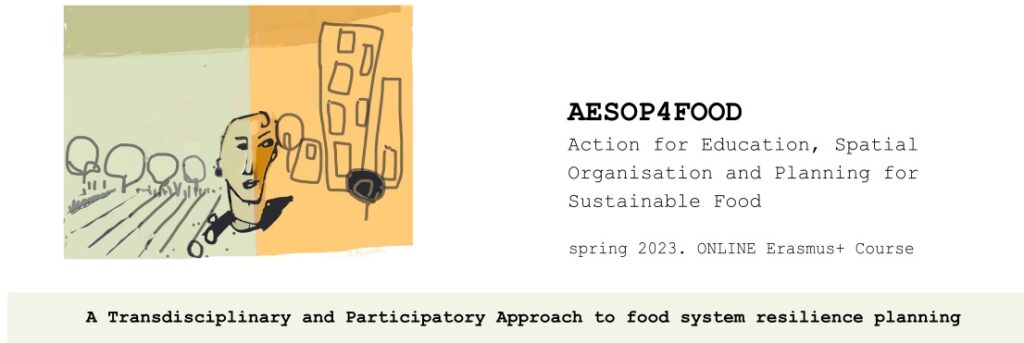
Here you can view the material of the courses in 2021, 2022, and 2023.
The material with presentations, recordings, reading material of 2024 is available here at the mediawiki.
Starting from the evidence of serious gaps in knowledge and transformative competencies to address the challenges in a multi-disciplinary way and the recognition of the essential role of graduates of (spatial) planning courses in developing integrated territorial plans in a democratic way, and understanding an inter-sectoral, multi-level, and multi-stakeholder approach, the AESOP4FOOD Erasmus+ project aims to answer the need for sustainable food planning by creating a joint interdisciplinary European learning activity.
AESOP4FOOD Erasmus+ is an online open course on sustainable food planning that consists of virtual classroom sessions with peers/experts (like Kathrin Bohn, Joe Nasr, Sebastian Marot, Chiara Tornaghi, Michiel Dehaene, Marian Simon and others), self-study and teamwork on case studies.
The seminar is a combination of lectures (theoretical, case study and project presentation) and interactive exercises that introduce the conceptual frameworks of Agroecological Urbanism, Regional Agroecological Food Systems, Multi-level governance, Food justice and democracy. The transdisciplinary approach is supported by Participatory Action Learning Research and Action Learning Research (PALAR) in connection with a series of existing Living Labs on food resilience.
International participants from different backgrounds and levels of education and professional expertise (from planning disciplines, agronomy, environmental sciences, and related subjects) are invited to participate in this transdisciplinary and participatory learning activity that supports a broader understanding of the contemporary challenges and existing strategies of approaching sustainable food systems in the context of spatial planning.
There will be two possible forms of participation: only attending the lectures and discussions or working on the assignment (5 ECTS). The assignment participants will work in small teams that focus on Living Labs or projects. They will benefit from additional tutoring/ feedback sessions and present their results in intermediary sessions.
The online seminar structured in 12 sessions (with additional presentations for assignment students) will take place in the first half of spring of 2023, running from March 2nd until June 1st, 2023, Thursdays from 17.00 until 18.30 CET.
The International Workshop is only for the students of the partner organisations of AESOP4FOOD.
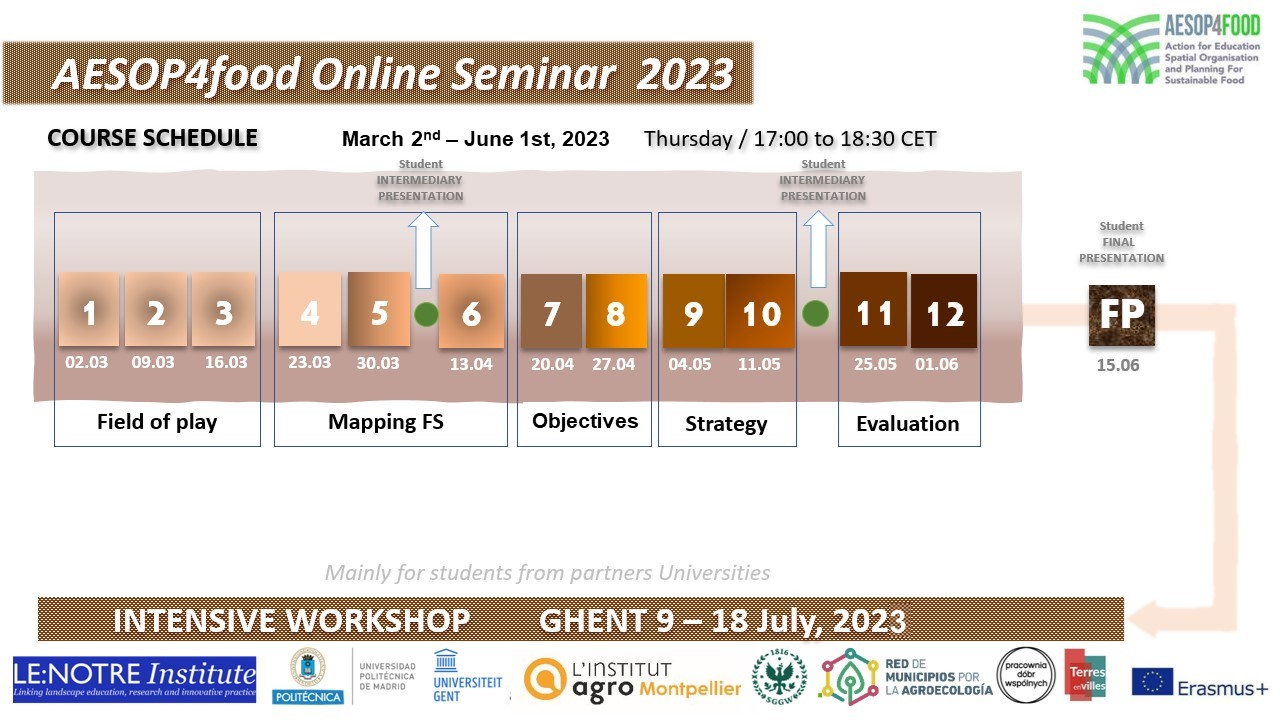
Presentation Phase I: March 2, 2023
In the first session Roxana Triboi: gave an introduction to the program of the seminar and its learning goals. Damien Conaré showed the historical context and the field of play with the main sustainable food challenges. On the basis of an interactive session, Jeroen de Vries reviewed the main concepts for sustainable food planning. The PowerPoint presentation can be viewed here, the plenary parts can be seen on this recording.
Presentation Phase I: March 9, 2023
Introduction by Roxana Triboi and an explanation of the challenges and background in governance by Nicole Pita of IPES. Agroecological Urbanism and the difference with traditional planning approaches – by Michiel Dehaene, Ghent University. You can view the presentation here.
Here you can find the recording of the session of Phase I – Field of Play. Nicole Pita presents the main challenges that the International Panel of Experts on Sustainable Food Systems, its origin, and the reasoning behind their publications. Michiel Dehaene of Ghent University presents the main concepts of Agroecological Urbanism and the building blocks that were developed in this framework.
Michiel Dehaene presented the results of the project Building an Agroecological Urbanism on the website, which you can see here.
Presentation Phase I: March 16, 2023
After a short recap of the first two sessions, Joe Nasr and Matthew Potteiger presented foundational visions and contemporary concepts of productive urban landscapes, and an outlook of approaches for this. You can find the PowerPoint of March 16 here. The recording of the lecture can be reviewed here.
Presentation Phase II: March 23, 2023
The second phase focuses on the mapping of food systems. Marian Simón Rojo of UPM gave an introduction on the relevance of mapping for starting transformative actions and presented an overview of the types of mapping. Katrin Bohn, of Bohn&Viljoen Architects & the School of Architecture & Design of the University of Brighton, presented several projects and how mapping played a role in them. You can review the recording of the presentation here. The presentation of the session can be viewed here.
Presentation Phase II: March 30, 2023
After an introduction by Marian Simón of UP Madrid, Jorge Molero of the Red de Municipios por la Agroecologia ( the network of municipalities for agroecology in Spain) presented on Mapping Short Food Supply Chains. You can download the PowerPoint here. You can review the recording of the presentation here.
Presentation Phase II: April 13, 2023
Marian Simón Rojo of the Universidad Politécnica de Madrid builds upon the former presentations on mapping. She shows how maps can be used for various aspects of the food system and for different goals. Maps can serve to analyse and present the needs, and the assets. They can also link up to policies and be used as a basis to develop strategies. Intersectoral collaboration is important in connecting sustainable food to health issues, food security, and well-being. Maps can also be created in a collaborative way to help communities to formulate common goals. You can view the recording here.
Presentation Phase III: April 20, 2023
The phase of collaborative goal setting and visioning started with an introduction by Damien Conaré on the background and experiences from France by Marc Nielsen of Terres en Villes) with the title Designing and implementing a local food strategy: key messages.
The participants engaged in an exercise using mural.co on collaborative goal setting in breakout rooms.
You can find the presentation of Damien Conaré and Marc Nielsen here. You can review the recording of the video here.
Presentation Phase III: April 27, 2023
Damien Conaré gave a short explanation on challenges, goals, visions, and activities related to the goals. Jess Halliday, Chief Executive of RUAF presented Inclusive multi-stakeholder platforms and food policy councils – from visioning to action planning and answered questions of the participants. You can find her presentation here and the videorecordings here.
Presentation Phase IV: May 4, 2023
Michiel Dehaene gives a short introduction to Phase IV on Strategy and visioning regarding the two sessions. Anna Wissmann presents the factsheets produced within the FOOD E project on the policy environment for sustainable city region food systems. Catherine Fierens from Bruxelles Environnement – Brussels Capital Region shows the Brussels Case, with a focus on the BoerenBruxselPaysan trajectory, giving a personal account of a policy entrepreneur. You can view the recording of the three lectures here.
Presentation Phase V: May 25 and June 1, 2023
Aleksandra Nowysz presents the evaluation frameworks for City Region Food Systems and the Milano Urban Food Policy Pact. Roxana Triboi elaborates on a case study on how for the Territorial Food Strategies in France are monitored, with the example of the region of Clermont Ferrand. Here you can find the presentation and video recording of the session. On June 1 Anna Podlasek of Warsaw University of Life Sciences gave a lecture on the Theoretical and practical background of Monitoring& Evaluation methods. The presentation can be downloaded here. You can view the recording of the presentation here.
Below you can find the presentations of the seminar in 2022
Presentations Phase I: March 24 and 31, and April 7, 2022
Dr. Roxana Triboi and Jeroen de Vries presented, after a short round of introduction of the partner organisations, an overview and working methods of the whole seminar Followed by an exploration of the field of play of sustainable food planning and the role of the course in this. The course is based on the educational approach of Participatory Action Learning and Research. The outcomes of the feedback on the learning objectives were presented. The concepts of food systems, agroecology, food democracy, and food justice were introduced. The participants are beginning to organise themselves.
The presentation of March 24 can be viewed here.
The session of March 31 focused on the main challenges for sustainable food planning and the reports and policies that are related to this such as the IPES Common Food Policy and the Milan Urban Food Policy Pact. Michiel Dehaene introduced the concept of Agroecological Urbanism.
The presentation of March 31 can be viewed here.
The session on April 7 presents a recap of the main concepts by Jeroen de Vries. Followed by an overview of cases with a different focus on current food systems. Damien Conaré presented Urban food policies & food environments, Michiel Dehaene focused on a Territorial framework – urban food common good in Ghent, Maciej Lepkowski discussed a Community garden as a model for circular urban metabolism. Marian Simon discussed Food movements and Food justice in Madrid.
Jorge Molero of the Network of Municipalities of Spanish Cities for Agroecology gave an overview of the challenges of current food systems showing the roles of the different stakeholders.
You can view the complete presentation of April 7 here.
Presentations Phase II: April 28 and May 12, 2022
The second phase of the seminar focuses on the Analysis of local foodscapes. Jeroen de Vries introduced practical guidance on the steps and guiding questions for mapping food systems. Marian Simón Rojo, Universidad Politecnica de Madrid, prepared a short exercise on power mapping of stakeholders. The session was concluded by a Case study: Mapping the Short Food Supply Chains by Jorge Molero, Red de Municipios por la Agroecologia.
You can view the presentation of April 28 here.
The recording of the session is here.
The second session on May 12, 2022 related to participatory action research and participatory food mapping. Participatory assessment: Easing the path to a democratic food agenda? by Mary Corcoran (National University of Ireland, Maynooth, Department of Sociology) and Spatial participatory food (systems) mapping by Katrin Bohn, Bohn&Viljoen Architects, School of Architecture & Design, University of Brighton. You can view the presentation here. The recording of the session can be (re)viewed.
Phase III: May 25, 2022 Collaborative goals setting and visioning
Damien Conaré (l ‘Iinstitut Agro) on Visioning and collaborative goal setting, and Marc Nielsen (Terres en villes) : A case study from the metropolitan area of SaintÉtienne (FR).
Phase IV: June 8, 2022 Strategy, Prototyping and transformative action (with Q&A)
Michiel Dehaene (Ghent University): strategies, prototyping, and transformative actions. You can download the presentation here and (re)view the recording here. The introduction also includes an explanation of the Assignment 4.
Sustainable Food Planning Seminar 2021
All the presentations and the recordings of the sessions can be (re)viewed by clicking on the links below.
INTRODUCTION TO SUSTAINABLE FOOD SYSTEMS INCLUDING THE ROLE OF PLANNERS, FOOD EQUALITY, FOOD JUSTICE
Ir Jeroen de Vries, landscape architect, is a researcher at the LE:NOTRE Institute. He researches the design of foodscapes in metropolitan areas, the productivity of different typologies of UA, and strategies to integrate these in the spatial design of urban and peri-urban areas. Jeroen combines work as a professional practitioner, lecturer, and researcher. He coordinated the theme of foodscapes in the LE:NOTRE Landscape Forums in Rome, Zagreb, and Bratislava. His mission is to foster the development of local food systems.
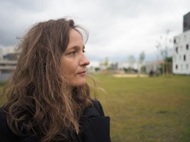
Roxana Triboi is a Romanian urban planner with experience in urban and landscape planning in Romania and France, and a Ph.D. in Architecture on urban pastoralism. Her professional experience revolved around the urban-productive-nature paradigm, currently in charge of Territorial Food Project for the Urban Agency of Clermont-Ferrand and Sustainable Food Planning Research for the LE:NOTRE Institute. Amongst other things she held and contributed to a series of conferences and seminars on food planning and urban pastoralism like the international conference “Food Urbanism” in Tartu (2018), Decolonizing food systems and food research (2017) and AESOP sustainable food planning conference (2015).
Affiliation
The LE:NOTRE Institute –shares its expertise, network, and e-learning facilities and thus support substantially the implementation of all planned activities. Its expertise includes methods and tools for democratic planning and design, co-creation of landscape knowledge and landscape objectives, and the implementation of student-centered and highly interactive e-learning courses. This expertise will be required for designing and implementing the course development and designing the blended learning elements.
Lecture: you can download the presentation here.
The recording is divided into four videos:
Part 1: Introduction and overview of the series
Part 2: Food challenges: the context and recent strategies
Part 3: Food resilience: indicators; informal and formal resilience
Part 4: the assignment for food mapping, with the references
Sustainable food planning is a thriving transdisciplinary research and policy field bringing together policymakers, academics, community workers, and practitioners across the globe. Food charters, food strategies, and food policy councils have multiplied, ‘alternative food networks’ have gained significant and growing shares of the food market and new forms of reallocation of food production, including urban agriculture, are gaining ground and becoming central components of new food policy strategies. Planning for sustainable food production and food provision is more than ever urging us to look for more effective, equitable and just approaches that radically change not only the way we grow food, but the very core of our living space. This seminar starts with an overview of the aspects of sustainable food systems and the planning that aims to foster the development of these systems. In the following lectures, an overview of recent developments and themes will be presented. First, we will have a look on the mapping of local and regional food systems. Participants can work on an assignment to map and evaluate their own local food system and develop an approach to improve it.
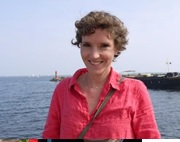
CITY-REGION FOOD SYSTEMS AND URBAN FOODSCAPES
Dr. Coline Perrin, human geographer, is a researcher at INRAE (Umr Innovation, Montpellier, France). She works on urban agriculture and urban food planning, with a focus on the influence of urban planning on farmland management and foodscapes. She combines cartography and qualitative survey methods, with the goal to assess, compare, and design innovations in urban food systems. She has coordinated several research projects (JASMINN) and designed innovative knowledge dissemination tools (e.g. an urban food system mapping, an educational game, and an online land innovations platform). She co-edited the book Toward Sustainable Relations Between Agriculture and the City (Springer, 2017). She loves to roam the cities in search of new culinary experiences, a sensitive understanding of the food environment and its influence on consumers’ food provisioning practices.

Damien Conaré, agronomist, is the Secretary-General of the UNESCO Chair on World Food System, at Montpellier SupAgro (The French National Institute of Higher Education in Agricultural Sciences). This Chair has specialized around city-region food systems through educational training, the valorisation of research projects (URBAL and Foodscapes), and the dissemination of knowledge through conferences and publications. Damien was one of the co-editors of the book « Designing Urban Food Policies ” (Springer, 2019). www.springer.com/gp/book/9783030139575
Affiliation
INRAE is the French National Research Institute for Agriculture, Food and Environment. As the world’s top institute for research on these three key topics, INRAE is committed to finding solutions for related challenges using science, innovation, and support for public policies. Its objective is to permanently transform how we grow food, produce food, and interact with the environment. At UMR Innovation laboratory, Montpellier, researchers in agronomy and social sciences (economics, sociology-ethnology, geography, law, management sciences) work together to inform private and public actors’ decision-making by producing knowledge on the processes of innovation and development in agricultural and food systems.
The UNESCO Chair in World Food Systems, based at Montpellier SupAgro (The French National Institute of Higher Education in Agricultural Sciences) develops science-society dialogues activities around three axes: dissemination of knowledge (conferences, seminars, publications); the valorization of research programs (more specifically on the topic of sustainable urban food systems), and training programs (in particular for a master degree on innovations and policies for sustainable food). www.chaireunesco-adm.com/en
Lecture: the presentation of Damien Conaré can be seen here, and the presentation slides of Coline Perrin here.
The recording of the session can be seen here.
Cities have been propelled into the forefront of the debate about sustainable food policies because, with rapid urbanization, the urban realm has become a locus for three of the main challenges to the conventional food system: multifunctionality, co-governance and re-localization. Since the early 90’s, many cities have engaged in food and agricultural policies as a way to reduce distance between producers and consumers. Using different levers, among which urban planning, local authorities are tackling many issues related to food. A case-study will be presented: the research program Foodscapes, which analyzes the effects of the urban food environment on food styles and their sustainability, in the city of Montpellier.
SPATIAL DIMENSION OF SUSTAINABLE FARMING SYSTEMS: AGROECOLOGICAL PLANNING IN TIMES OF UNCERTAINTY
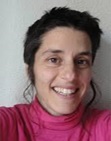
Marian Simón-Rojo is Dr. architect, Adjunct Professor at the Department of Urban and Regional Planning (Universidad Politecnica de Madrid). She has participated in different R&D projects dealing with spatial planning of ecosystem services and sustainable food systems: PAEC-Sp (Periurban Agrarian ECosystems in Spatial Planning), COST Action Urban Agriculture Europe, or the EraNet2 DIVERCROP. She oversees the Operational Group PAUSA (Research Platform on Organic Agriculture, Urbanism, and Food Systems). As an urban planner, she was responsible for the design of Madrid’s Food Strategy 2018.2020 and works with the Regional Government of Madrid in the recovery of abandoned agrarian land in peri urban areas.
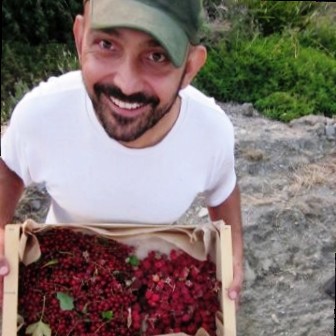
Jorge Molero Cortés is an Agricultural Engineer, MSc in Agroecology. Member of the Entretantos Foundation (Valladolid, Spain) and Technical Coordinator of the Red de Ciudades por la Agroecología (Spanish Cities Network for Agroecology), where he works since 2018 supporting Local Governments to achieve their Food Policies Strategies and Planning. During his professional life, he has combined consultancy, research and training with organic food production. He is specialized in economic, environmental and social sustainability of Associative and Cooperative Short Food Supply Channels,working through participation with governance and technical procedures, practices and tools.
Affiliation
Universidad Politecnica de Madrid- focused on “Urbanism and Agrarian Systems” in which practical tools to integrate peri-urban agrarian areas in urban and territorial planning, as well as models and methodologies to assess and guide the design of sustainable food systems have been developed.
Red de Ciudades por la Agroecología – (funded in 2018 and composed by 22 municipalities) is an association of Local Authorities to promote sustainable and healthy food policies aligned with Agroecology. The network brings together policymakers, politicians and social organizations in order to support cities in the development and implementation of local food policies, through creating multi-actor Communities of Practices on different issues (e.g., health and right to food, green public procurement, legal protection of peri urban agricultural land or participatory governance processes and also enhancing P2P cooperation and political engagement. It also develops a strong activity on awareness raising oriented both to politicians (at local and national levels) and citizenships, and on sustainable food advocacy international levels, promoting processes such as the Glasgow Declaration on ‘Food and Climate’ (COP26, Glasgow 2021) or the World Sustainable Food Capital Barcelona 2021.
Lecture: you can download the presentation on the Spanish Network here and the presentation of Marian Simón-Rojo here.
The recording of the session can be seen here.
The emerging interest in sustainable agriculture and short food supply chains could drive an agroecological renewal in the agri-food sector. Based on an existing typology of urban farming and sustainable agro-environmental farming systems, we present some case studies that frame which functions and roles different areas may play, depending on factors such as size, property structure, ecological connectivity, agro ecological conditions, soil quality location, and relation to urban areas.
We present also the Spanish Network of Agroecological Cities, as a powerful tool for change. It is conceived as a space of exchange and knowledge transfer between technicians from local governments, and also has a Committee with Social organizations.
AGROECOLOGICAL URBANISM

Chiara Tornaghi (1972) is Associate Professor in Urban Food Sovereignty and Resilience at the Centre for Agroecology, Water and Resilience (CAWR), Coventry University, UK. She has a background in Politics (Lauream, State University of Milan, 2001), and Sociology (PhD, University of Milano Bicocca, 2005) and Planning (PgCert, University of Newcastle, UK, 2006). Her research interests include grassroots contestation and reappropriation of public space, politics of urban land, political pedagogies, indigenous cosmologies and knowledge of plants as food and medicine, feminist political ecology and urban agroecology. Since 2016 she is the elected Chair of the AESOP Sustainable Food Planning group. Beside academic life, she is also an allotmenteer, a community food grower, and working towards reskilling herself in medical herbalism.
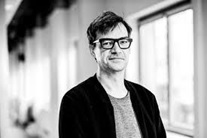
Michiel Dehaene (1971) is Associate Professor in Urbanism at the department of Architecture and Urban Planning at Ghent University where he leads his own research group and teaches courses in urban analysis and design. He holds a master’s degree in engineering-architecture (KULeuven 1994), a Master of Architecture in Urban Design (Harvard University 1996) and a PhD in Architecture and Urbanism (KULeuven 2002). His work focusses on sub-urban renewal, the (planning)history of dispersed urban development, sustainable cities, and food planning. His long-term research has been structured around the incorporation of urban theories and theories of urbanization within the fields of planning and design, moving away from normative design theory. This includes systematic work on urban development models and territorial strategies that support the agroecological production of food. With Chiara Tornaghi he leads the JPI SUGI Urbanising in Place project on the development of an Agroecological Urbanism.
Affiliation
Ghent, University, Dept. Architecture and Planning – incorporation of urban theories and theories of urbanization within the fields of planning and design, moving away from normative design theory. Including systematic work on planning and design models to address the urbanisation of food.
Coventry University with the Centre for Agroecology, Water and Resilience (CAWR) drives innovative, transdisciplinary research on the understanding and development of resilient food and water systems and the pivotal role that communities play in developing resilience and playing an active role in shaping sustainable food strategies and practices.
Lectures: you can download the presentation of the first lecture on Agroecological Urbanism here. The recording of this session can be (re)viewed here. The presentation of the second lecture can be seen here. The recordings of May 6 can be (re)viewed here.
I Agroecological Urbanism: challenging the status quo of sustainable food planning: in this lecture, we would like to discuss the way in which an agroecological perspective is instructive to push the boundaries of sustainable food planning.
II Agroecological Urbanism: a programmatic agenda in a second lecture we would like to construct a forward-looking agenda for agroecological urbanism, building on urban political ecology and feminist social reproduction informed critique of urbanism.
GOVERNANCE -DEVELOPING NETWORKS for AGROECOLOGY with a CASE STUDY of the Netherlands (and other countries)
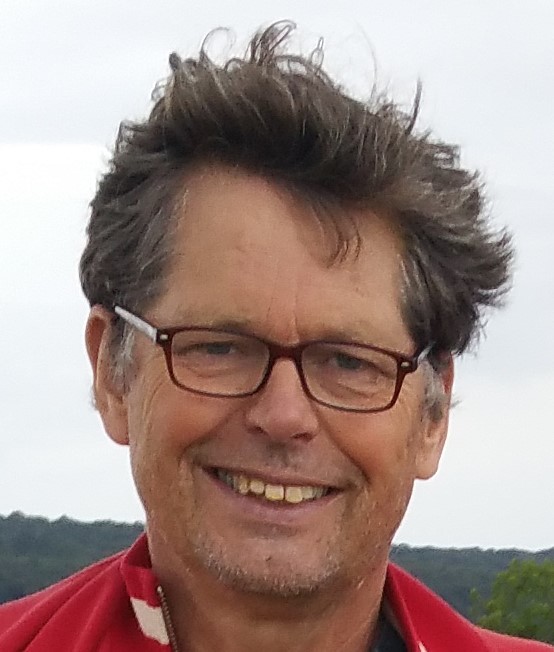
Piet Rombouts’ mission is to support the development of agriculture and food production in a profitable and sustainable way with good corporate social responsibility. Motivated by climate change and worldwide occurring soil problems he focuses on agroecology, water and soil management, and improving green-blue infrastructure. He combines great experience in the process of policymaking with the skill to translate this knowledge to the grass-roots level, aiming to get policies implemented, and empowering and informing farmers and other stakeholders. He was closely involved in rural development and sustainable agriculture in Latin America (Colombia, Honduras, and Brazil). In the Netherlands, he works with farmers and environmental organizations, e.g. for the development of regional Agroforestry networks.

Ir Jeroen de Vries, landscape architect, is a researcher at the LE:NOTRE Institute. He researches the design of foodscapes in metropolitan areas, the productivity of different typologies of UA, and strategies to integrate these in the spatial design of urban and peri-urban areas. Jeroen combines work as a professional practitioner, lecturer, and researcher. He coordinated the theme of foodscapes in the LE:NOTRE Landscape Forums in Rome, Zagreb, and Bratislava. His mission is to foster the development of local food systems.
Lecture: Here you can (re)view the complete presentation and the recording of multi-level, inter-sectorial, and multi-stakeholder governance and the case of developing regional farmers’ networks for the transition into agroforestry in the Netherlands.
The IPES report on the Advice on a Common Food Policy states that multi-level governance is essential for developing sustainable food systems. While social innovation and experimentation are emerging rapidly at the local level, from community-supported agriculture schemes and farmers’ markets to the creation of local food policy councils and urban food policies. These initiatives are highly promising in terms of sustainability (e.g. reducing environmental impacts and reclaiming value for small-scale farmers/food businesses) and in terms of reconnecting actors (e.g. producers and consumers, citizens and local policymakers) in a way that restores democracy, accountability, and trust in food systems. A different type of policy – a governance framework for transition – is needed to overcome these path dependencies. Only an integrated policy with a long-term vision and a mandate to address the whole system can drive the coordinated shifts that are required across food production, processing, distribution, and consumption (i.e. overcoming the systemic lock-ins). It is apparent that individual consumers and producers feel not empowered to change the food system in a sustainable way. To be seen as a partner in the dialogue with policymakers and authorities they need to organize themselves. Examples of this are Food Councils and Networks of Producers.
We will start to give an overview of policies on an international level and connect these to regional an local levels with examples of governance that can support this integral transformation. Then we present two cases: the organisation of a local food council and the development of a regional network for Agroforestry.
Research Methods on sustainable food planning
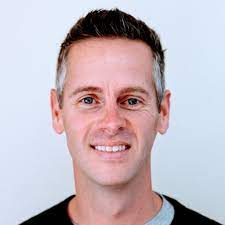
The AESOP-Sustainable Food Planning group aspires to improve the integration of PhD students and young professionals and to grow the “next generation” of experts in the field of sustainable food planning. Part of this intention is a formalized PhD-Young Professionals (PhD-YP) group to acknowledge the achievements of early career scholars in SFP and foster networking among them. It brings together not only academics but also policy-makers and practitioners at the beginning of their career and organizes regular exchanges. More information on the group can be found at the website, facebook and linkedin pages.
Content of the session
This session will consist of an Overview of Research Methods on sustainable food planning. The presenter is Dr. Mark Spires of the Centre of Food Policy, City University of London.
You can view the presentation here, and (re)view the session including the Questions and Answers here.





